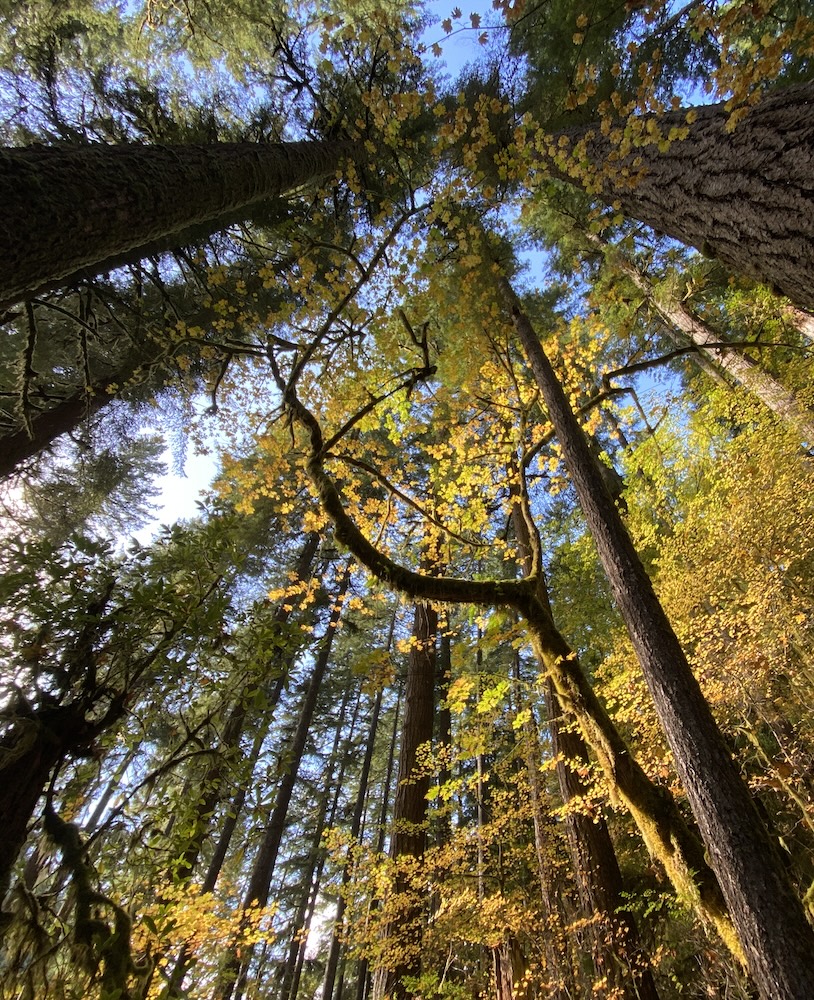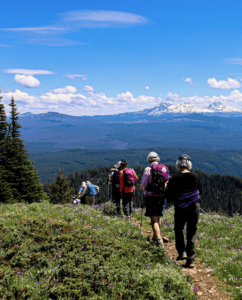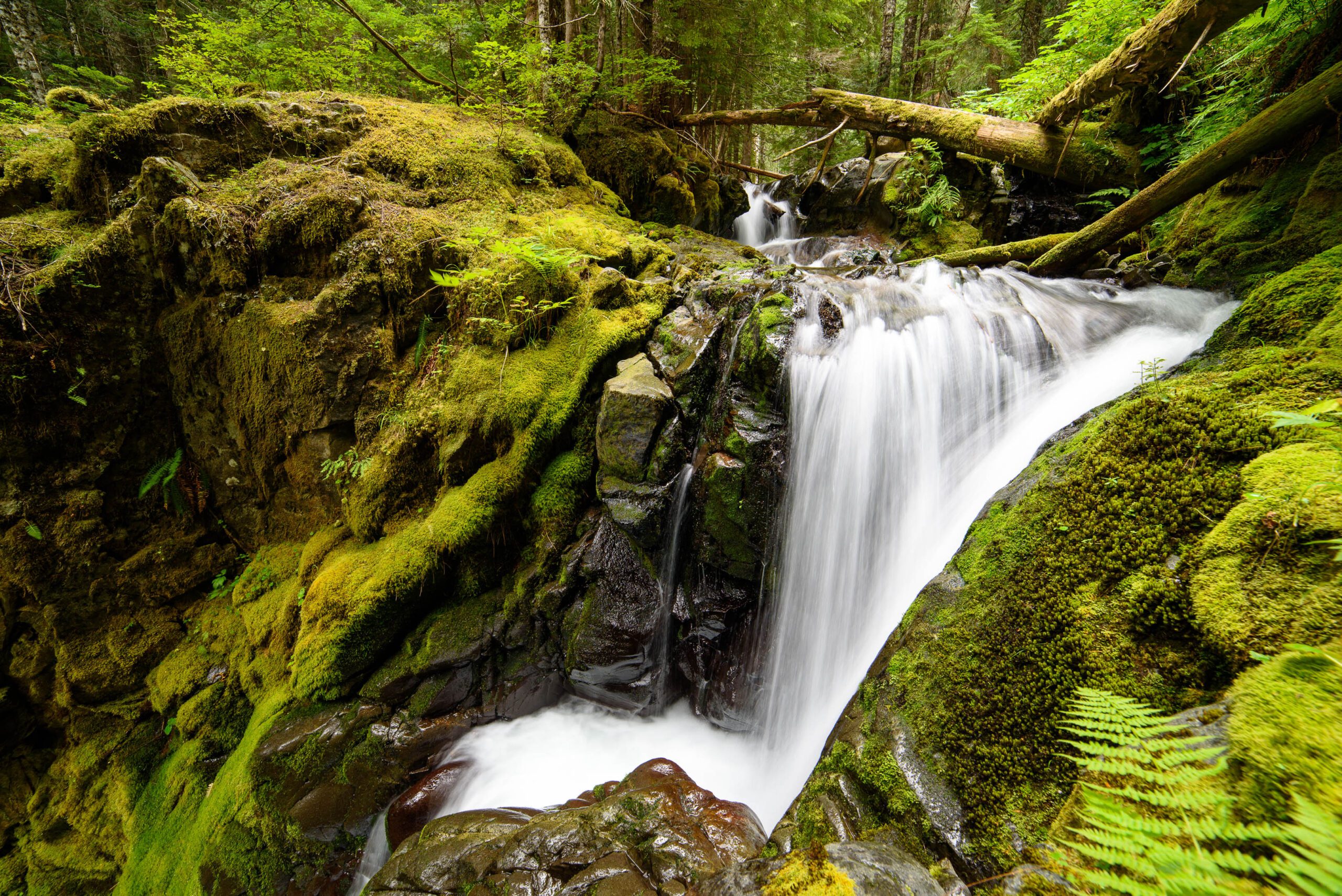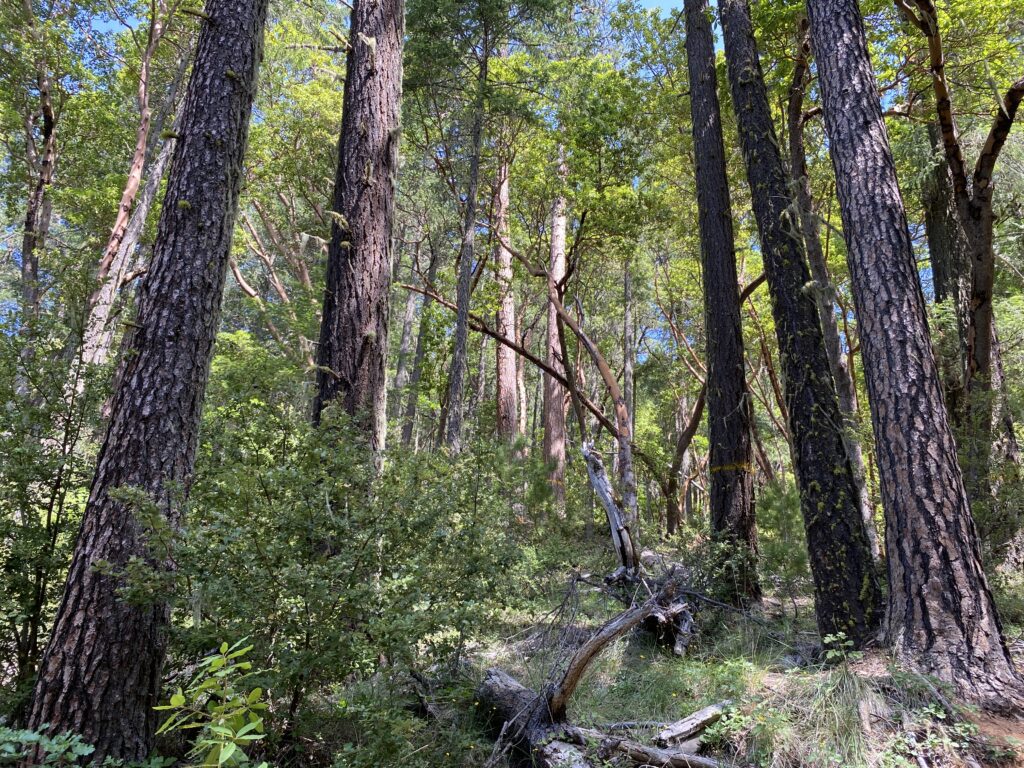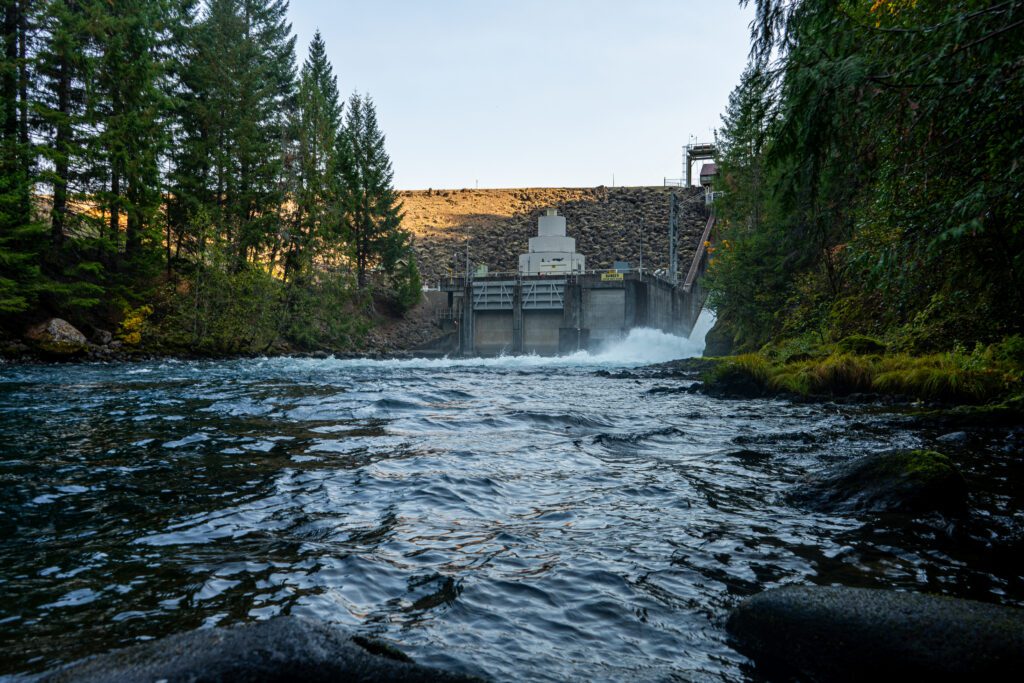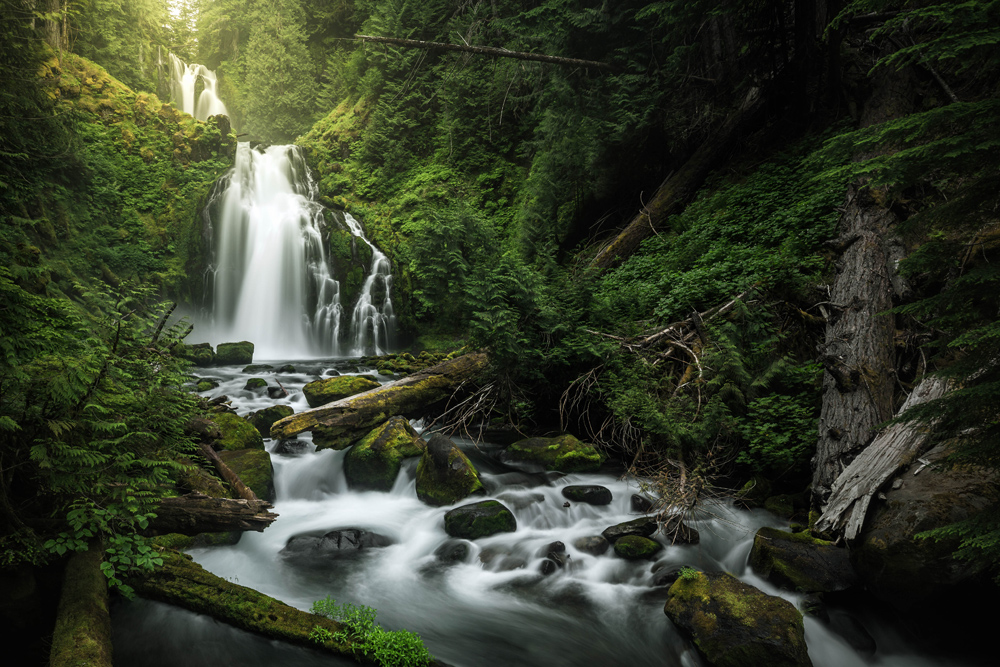Oregon is renowned for its wild rivers, lush forests, and breathtaking landscapes. These natural wonders not only provide opportunities for recreation but also serve as the primary source of drinking water for a majority of the state’s population. In fact, approximately 71% of Oregonians rely on streams and rivers, referred to as “surface water sources,” for their drinking water.
However, Oregon’s surface waters are some of the most polluted in the nation, a result of widespread clearcut logging, agricultural runoff, mining, damming, and industrial development in watersheds. A 2022 report from the Environmental Integrity Project found that Oregon has the most miles of impaired rivers and streams in the nation. That means those rivers do not meet Clean Water Act standards for drinking water, recreation, or for aquatic life.
The River Democracy Act: A Beacon of Hope
We know that aggressive logging, mining, and dams can all pollute drinking water. But what can we do about it?
Oregon Wild recently released a comprehensive report analyzing the significant positive impact the River Democracy Act would have on drinking water sources for communities across Oregon. This report highlights the potential role the River Democracy Act could play in safeguarding Oregon’s pristine rivers and watersheds, which are vital to the well-being of its residents and the state’s economy. We found that over 1.3 million Oregonians would receive increased protections to their drinking water under the River Democracy Act, including those who live in Eugene, Bend, Medford, much of Clackamas County, and many other communities all across the state.
The River Democracy Act, introduced by Senators Ron Wyden and Jeff Merkley, aims to designate 3,200 miles of Wild & Scenic Rivers across Oregon, increasing the percentage of Oregon’s waterways protected as Wild & Scenic from 2 to 5%. Protected watersheds are crucial to clean, safe drinking water, and many Oregonians–1,315,000 of them to be exact–will benefit from this important legislation.
By designating a buffer on each side of the river (either ¼ mile or ½ mile) Wild & Scenic River designations prevent new dam construction, new mining claims, clearcut logging, and other activities that would degrade the river’s water quality and natural values. Additionally, each Wild & Scenic river will have its own “Outstandingly Remarkable Values” (ORVs) identified. These values may include water quality (e.g. for clean drinking water), fish, wildlife, recreation, scenery, geology, cultural, wildness, or other values. Any activity that would degrade water quality or drinking water is prohibited in designated Wild & Scenic Rivers if “water quality” is listed as an ORV.
Highlighted Drinking Watersheds in the Report
The River Democracy Act represents a critical step toward protecting Oregon’s clean drinking water. The report highlights a number of watersheds that would receive additional safeguards and the communities that would benefit from these increased protections, including but not limited to:
McKenzie River Watershed: 211,000 Oregonians
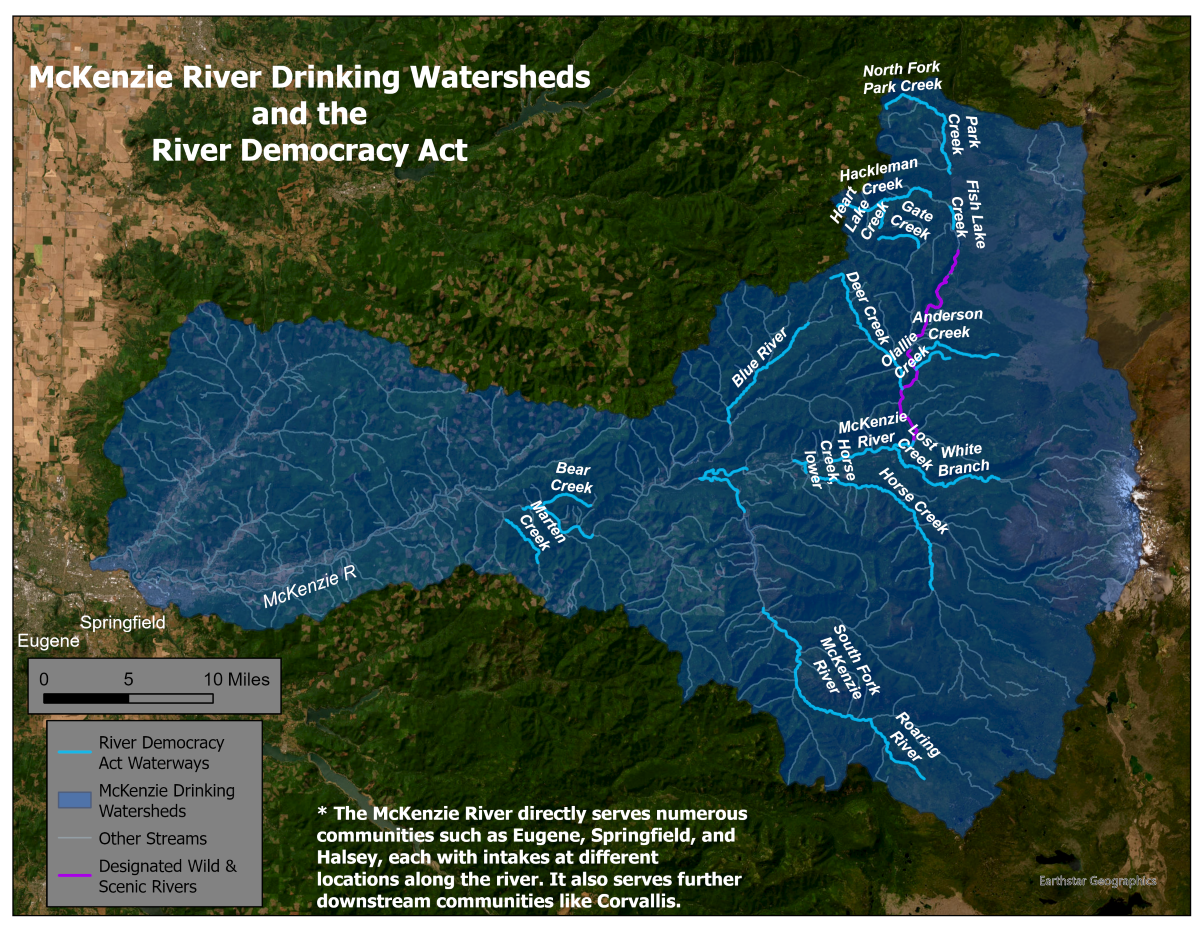
Tumalo Creek Watershed: 103,000 Oregonians
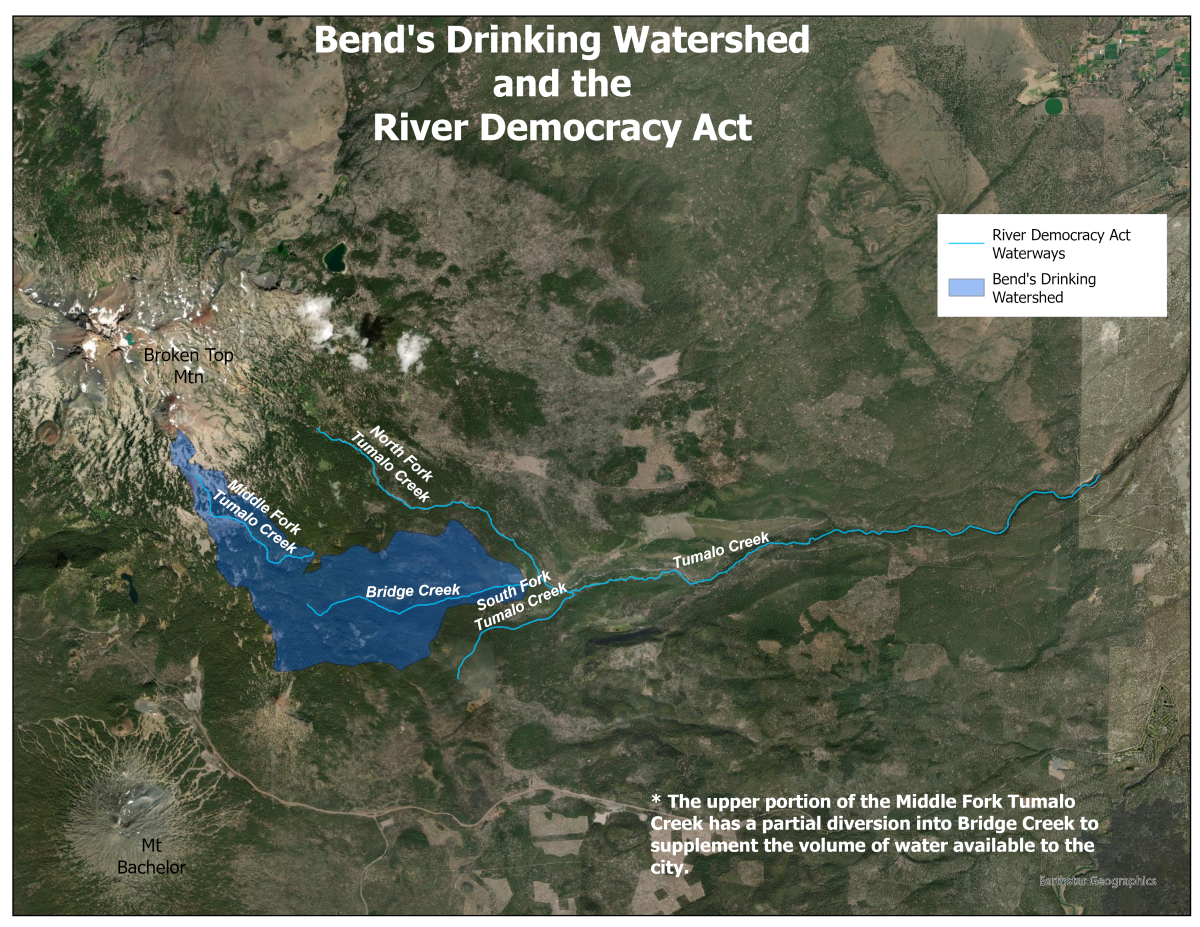
Rogue River Watershed: 140,000 Oregonians
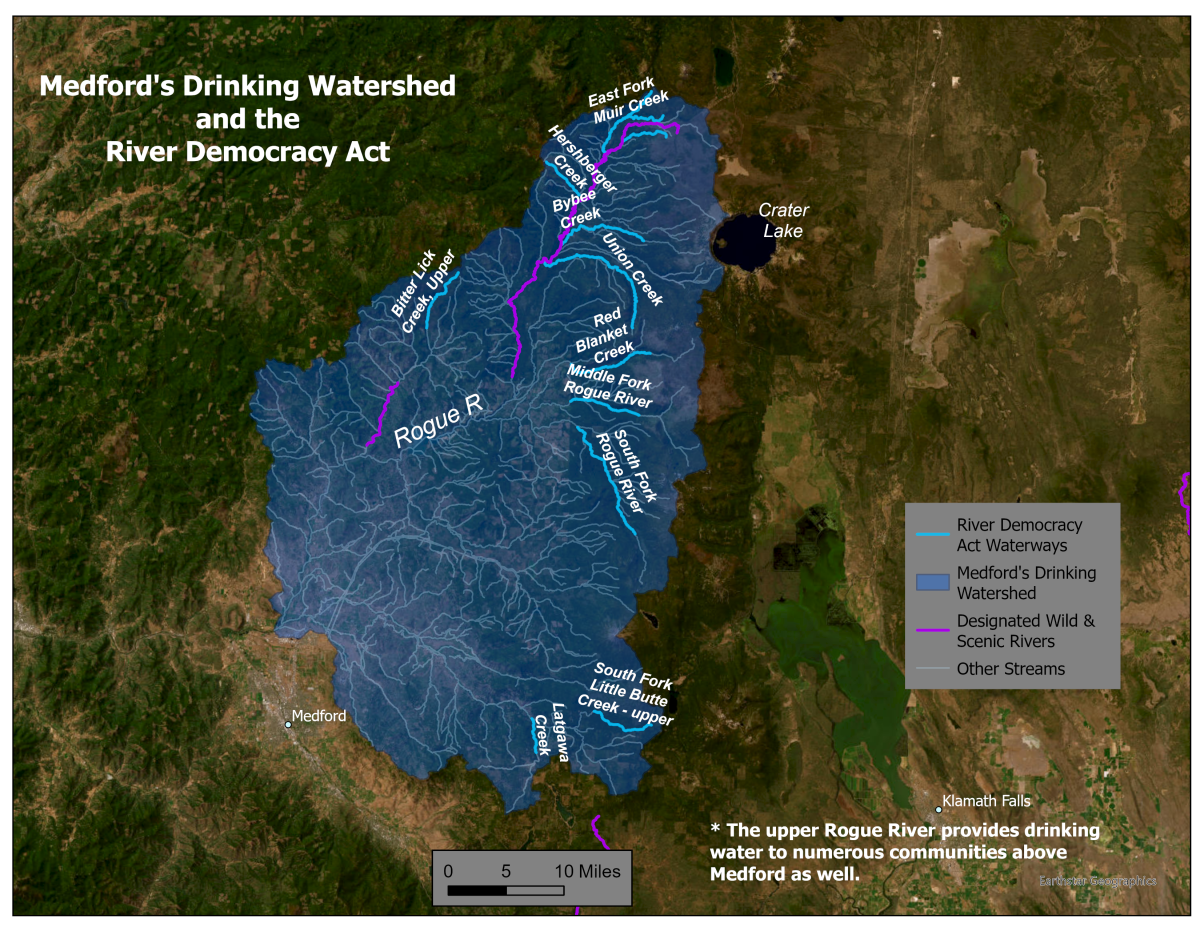
Clackamas River Watershed: 317,000 Oregonians
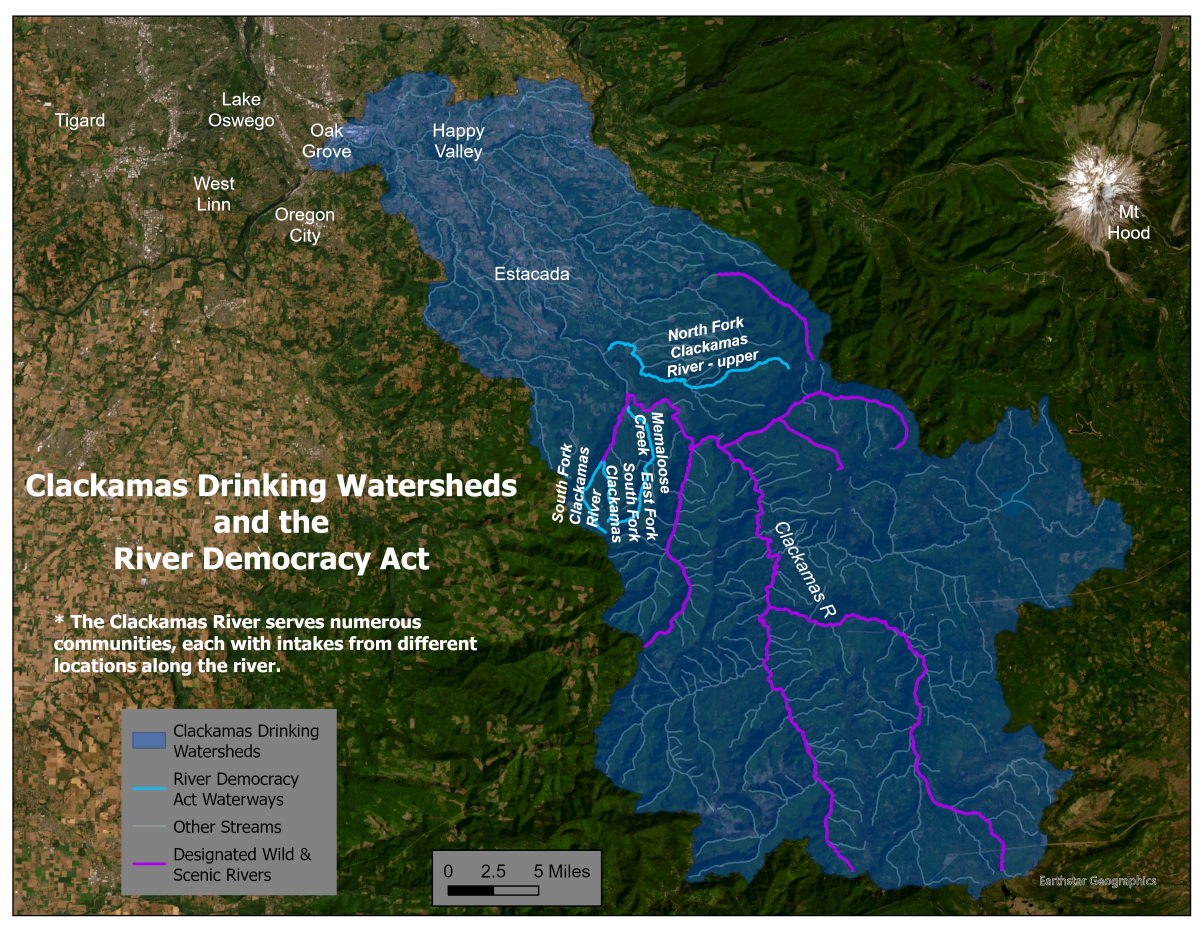
Speak up for Oregon’s waters and communities
Healthy watersheds contribute significantly to Oregon’s rural and urban economies. Beyond providing safe, cost-effective drinking water, these waterways support local agriculture and Oregon’s thriving craft beer industry. The recreational opportunities along these waterways, from fishing to paddling, mountain biking to hiking, bolster Oregon’s outdoor recreation economy. The River Democracy Act doesn’t just protect water; it safeguards jobs, industries, and the well-being of our communities. Don’t just take our word for it, support for the bill includes over 50 local breweries, 250 additional Oregon businesses, 75 community organizations, 26 fisheries biologists, hunters and anglers, and thousands of Oregonians.
While the River Democracy Act won’t solve all of our drinking water issues in Oregon, it is a bold step towards providing additional safeguards to drinking water for over a million people across the state.
